If a landlord in Georgia encounters property damage caused by a tenant, it is important to take steps to document the extent of the damage and ensure that appropriate action is taken. The first step for landlords when assessing tenant-caused damage is to inspect all areas of the rental unit or house.
This inspection should be thorough and documented with photos or written notes as evidence. If necessary, landlords can also request quotes from contractors or vendors who can repair the damage.
Landlords should also consider using an inventory checklist to detail any existing damages in the unit before the tenant moves in, as this will help establish what damages were caused by the tenant and which were existing prior to their tenancy. After assessing the level of damage, landlords can then choose how best to proceed, whether pursuing legal action against their tenant or deducting fees from their security deposit for repairs.
Being aware of these steps and taking them proactively will help protect Georgia landlords from financial losses due to property damage.

As a Georgia landlord, it is important to know how to gather accurate repair estimates when dealing with tenant-caused property damage. Without proper estimates, you may end up spending more money than necessary to repair the damage.
The best way to acquire such estimates is by consulting professional contractors or repair services. Make sure to get multiple quotes from different service providers so that you can compare prices and services offered.
It is also important to have a clear understanding of the scope of work and the materials needed for the job. This should be documented in writing and signed by both parties before any work begins.
Additionally, consider getting a pre-repair inspection completed in order to determine and document existing damage that was not caused by your tenant – this will help prevent disputes later on. Lastly, take pictures of all existing damages before beginning repairs; this will help ensure that all tenants are held accountable for their actions.
When it comes to tenant-caused property damage, Georgia landlords need to be aware of their legal obligations and the security deposit reconciliation procedure. Every landlord must conduct a thorough move-out inspection, document all damages in writing, and provide a written statement of deductions from the security deposit within one month of the tenant’s move-out date.
It is important for landlords to take photos or videos during this process so that they have proof of damages. Upon completion of the inspection, if there is any money left over from the security deposit after covering the cost of repairs, landlords are required to return this to the tenant within one month.
In order to ensure compliance with Georgia laws, landlords must keep detailed records of their security deposit reconciliation procedure.
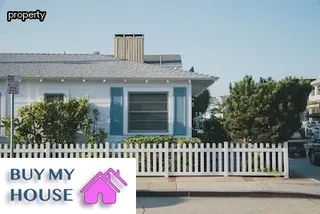
Invoicing tenants for any remaining amounts due after their security deposit has been used is a necessary step for Georgia landlords. When deciding how much to invoice, it is important to consider the amount of damage done to the property and the value of any items not replaced, as well as applicable state laws and local ordinances.
Landlords should make sure that all invoices include an itemized list of damages and repairs, along with their estimated costs. Additionally, they should ensure that all invoices are paid in full within a reasonable time frame.
In order to maintain a good landlord-tenant relationship, communication is key when it comes to invoicing tenants for property damage caused by them. It is best practice for landlords to discuss the payment plan with the tenant prior to sending an invoice and keep records of all conversations regarding the invoice and payment status.
Utilizing LexisNexis® and Bloomberg Law to understand archived content is an invaluable tool for Georgia landlords looking to protect their property from tenant-caused damage. Both services offer access to a wealth of legal research, including case law, statutes, regulations and more.
With LexisNexis®, users can search by keyword, jurisdiction, document type and more. Bloomberg Law offers similar search capabilities with the added ability to filter results by topic or date range.
By leveraging these resources, landlords can quickly identify the most relevant information needed to help them assess and mitigate risks associated with tenant-caused property damage in Georgia.

Normal wear and tear is an important concept for Georgia landlords to understand when it comes to tenant-caused property damage. Normal wear and tear refers to the gradual deterioration of a property caused by everyday living activities, such as aging carpets, scratched paint, and minor scuffs on walls.
It is not considered negligence on behalf of the tenant and does not require compensation from them. In contrast, property damage that goes beyond normal wear and tear due to carelessness or malicious intent can be charged back to the tenant through deductions from their security deposit.
Examples of damage that goes beyond normal wear and tear include broken windows, holes in walls, burned carpets, or extensive water damage resulting from misuse of appliances. Landlords should take pictures of the condition of the property before a tenant moves in so they have proof if there are any disputes over whether any damage was pre-existing or caused by the tenant during their residency.
When it comes to tenant-caused property damage, Georgia landlords should be aware of the difference between normal wear and tear, and excessive property damage. Normal wear and tear is typically seen as deterioration over time caused by regular use.
This could include minor scuff marks on walls or floors, faded paint or wallpaper, worn carpets, and loose door handles. On the other hand, excessive property damage is any destruction done to the property beyond what would be considered normal wear and tear due to regular use.
This could include broken windows, large holes in walls or floors, missing doors or appliances, and vandalism. It's important for Georgia landlords to understand how to differentiate between these two types of damages so they can take appropriate action if needed.
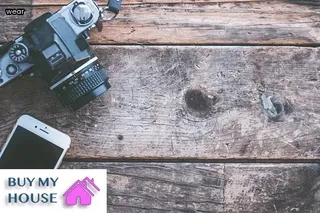
After a tenant has caused excessive damage to a rented property, landlords in Georgia must take certain steps to ensure their rights and the property are protected. First, it is important for landlords to document the damage accurately with photographs or videos that can be used as evidence if necessary.
Next, landlords should contact the tenant as soon as possible and inform them of the damage and provide an estimate of repair costs. If the tenant does not respond or refuses to pay for repairs, they may need to pursue legal action against them.
Finally, landlords should also consider filing an insurance claim if they have coverage that covers this type of situation. This way, any repairs can be made quickly and without relying on the tenant's cooperation.
When it comes to rental properties in Georgia, both landlords and tenants have obligations for routine maintenance. Landlords are responsible for providing safe and livable premises that meet all local health and safety regulations, as well as ensuring necessary repairs are made in a timely manner.
Tenants must keep the property clean and free of damage, which includes regularly cleaning the premises, handling minor repairs themselves, and immediately reporting any issues or property damage to their landlord. In addition, tenants must adhere to rules regarding pest control and garbage disposal outlined in the lease agreement.
Taking these steps can help ensure that both parties remain in compliance with their respective responsibilities under the lease agreement.
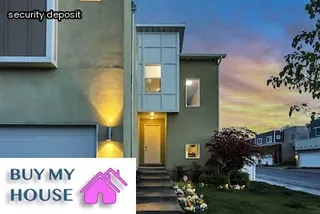
Landlords in Georgia should be aware of the potential for tenant-caused property damage and take measures to protect their investment. Establishing a clear policy on tenant responsibilities, conducting thorough inspections before and after tenants move in, and utilizing a security deposit can all help landlords avoid property damage from tenants.
Creating a written lease agreement that outlines expectations such as notification of any maintenance or repair needs, timely rent payments, and prohibited items like pets can set the tone for a successful landlord-tenant relationship. Taking photos or videos of the unit prior to move-in is also recommended to document any existing issues.
Additionally, communicating regularly with tenants throughout their tenancy can help prevent issues before they become problematic. Finally, staying abreast of rental laws in Georgia will ensure landlords are following best practices when it comes to tenant-caused property damage.
In Georgia, landlords and tenants both have certain legal responsibilities regarding property damage. Landlords are responsible for ensuring that the property is kept in a safe, habitable condition and providing necessary repairs or maintenance when needed.
Tenants must keep the rental unit clean, undamaged and safe during their tenancy. If any damages occur to the rental unit that are caused by tenants or their guests, the tenant is legally obligated to pay for these repairs.
Landlords should be familiar with all applicable laws in order to determine whether damages are covered by the tenant’s security deposit or if additional payment is required from the tenant. Landlords may also choose to utilize insurance policies as protection against injury or damages caused by tenants or their guests.
It is important for landlords to understand their rights and obligations when dealing with tenant-caused property damage in order to ensure that they remain compliant with local laws and regulations.
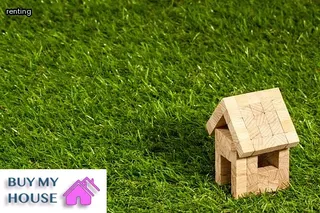
Georgia landlords should take proactive steps to reduce the risk of tenant-caused property damage. Landlords can start by thoroughly screening potential tenants, including a background check and an assessment of their rental history.
A written lease agreement is also essential, as it clearly outlines the tenant’s responsibilities and clarifies any expectations regarding the condition of the rental property. Additionally, landlords should ensure that all tenants are aware of the consequences if they fail to meet these requirements.
For example, a clause in the lease might stipulate that any damage caused by a tenant will be repaired at their expense or deducted from their security deposit. Regular inspections can also help identify any existing damage or problems early on and allow landlords to address them quickly before they become more costly.
Finally, proper maintenance is critical for minimizing damage over time; this includes regularly checking smoke detectors and other safety features, as well as performing routine repairs such as fixing leaky faucets or patching up holes in drywall. By taking these steps, Georgia landlords can significantly reduce the risk of tenant-caused property damage.
Georgia landlords should be aware of the tenant-caused property damage laws that can affect their business. The Georgia Landlord Tenant Act outlines the tenant’s responsibilities when it comes to property damage and sets guidelines for how a landlord should proceed in case of damages.
It is important for landlords to understand the legal implications of tenant caused property damage, as well as the steps they can take to protect themselves from future liability. A few examples of relevant laws include: Georgia law states that tenants are responsible for all reasonable wear and tear on the premises, regardless of who caused it; if a tenant causes intentional destruction or malicious destruction then they may be liable for two times the amount of actual damages; in some cases it is possible for a landlord to seek compensation from third-party individuals or entities if a tenant has caused damage to the rental property; and landlords may also require tenants to purchase renter’s insurance which will cover any accidental damages that occur on the premises.
Understanding these laws and knowing what steps you can take to protect yourself from future liability is essential for Georgia landlords.
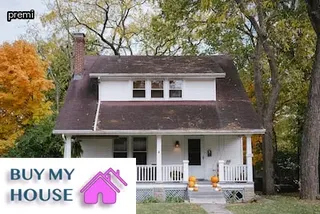
Tenant-induced property damage is a common issue landlords in Georgia need to be aware of. Damage caused by tenants can include physical destruction of the rental unit, such as holes in walls and floors, broken windows and doors, or damaged fixtures.
Tenants may also cause damage through neglecting to properly care for their rental unit, leading to issues such as mold growth, water damage, insect infestations, or structural damages due to inadequate maintenance. Tenants may also create damages through intentional destruction, such as vandalism and graffiti.
Landlords should be aware of the potential risks associated with tenant-caused property damage and take preventative measures to protect their investments from destruction.
As a Georgia landlord, it is important to be aware of the financial implications that can arise when tenants cause property damage in your rental home. Insurance can protect you against unforeseen costs such as expensive repairs and replacements, but it is also important to consider effective solutions for resolving disputes over who pays for damages.
Clear communication about repair and maintenance responsibilities can help limit liability, meaning both landlords and tenants understand their respective roles in the event of property damage. Assessing the cost of professional cleaning services following a tenant’s departure is also essential for ensuring the home is left in an acceptable condition.
Taking time to learn tips on how to make repairs quickly and efficiently following a property damage incident can help minimize losses associated with tenant-caused damage.
In Georgia, landlords can sue their tenants for damages caused to the property. However, it is important to understand the legal process involved in doing so, as it varies depending on the situation.
Georgia law requires that landlords provide written notice to the tenant of their intent to seek damages, as well as proof that the tenant was responsible for inflicting them. Additionally, a landlord must also prove that they provided adequate care and upkeep of the property prior to any damage occurring.
If these criteria are met, then a landlord may be able to successfully sue their tenant for damages in Georgia court. It is important for landlords to have an understanding of relevant laws and regulations when pursuing this type of legal action in order to protect themselves from potential liability.

Under Georgia law, tenants are required to maintain the property they are renting in good condition and to report any damage that occurs while they’re living there. The Georgia Code Section 44-7-13 sets out the legal obligations of landlords and tenants regarding tenant-caused damage to property.
Landlords must maintain all rental housing in a safe and livable condition. Tenants must keep the premises in clean, safe and sanitary conditions, use reasonable care when using appliances and fixtures provided by the landlord, and not willfully or negligently destroy, deface, damage or remove any part of the premises or knowingly permit anyone else to do so.
Tenants are also responsible for repairing any damage caused by their own negligence or that of their guests. If repairs are needed due to tenant-caused property damage, landlords can hold tenants accountable for repair costs under Ga.
Code Ann. § 44-7-14.
In addition, tenants may be liable for damages which exceed repair costs if their actions were intentionally destructive or negligent.
Georgia Code Section 44-7-33 covers the responsibilities and obligations of both landlords and tenants regarding property damage. Landlords in Georgia are required to follow the guidelines set forth in this code to ensure they meet their obligations when it comes to tenant-caused property damage.
Under GA Code Section 44 7 33, landlords must take reasonable steps to protect their rental property from damages caused by tenants. This includes regularly inspecting the premises, making necessary repairs, and collecting a security deposit from the tenant that can be used towards repairs if necessary.
Additionally, landlords must provide written notice to tenants about their rights and obligations regarding damages before signing a lease agreement. Tenants have an obligation to repair any damages that are beyond ordinary wear and tear unless otherwise stated in the lease agreement.
In the event of tenant-caused property damage, landlords should document all costs associated with the repairs, including estimates for labor or materials needed for repairs. The landlord is then able to deduct these expenses from the security deposit if applicable or pursue legal action against the tenant as allowed by Georgia law.
Overall, understanding GA Code Section 44 7 33 is essential for Georgia landlords who want to protect their rental properties from damages caused by tenants.
In Georgia, landlords can charge tenants for damages to their property up to one year after they move out. This is due to the Georgia Landlord Tenant Act which states that a landlord has 12 months from the time of termination of tenancy to file a claim against a tenant for property damages caused by them.
If a tenant does not resolve an outstanding claim within the allotted time frame, the landlord can file suit in court and seek reimbursement for any damages caused. It's important for landlords to be aware of this legal protection so that they can take swift action if there is ever evidence of property damage caused by a tenant.
Additionally, it's important that landlords document any potential or actual damage as soon as possible with photographs and other evidence so that they have clear proof should they need to pursue legal action within the one-year timeframe allowed by law.